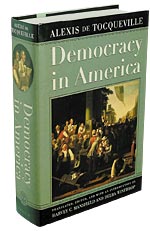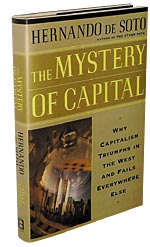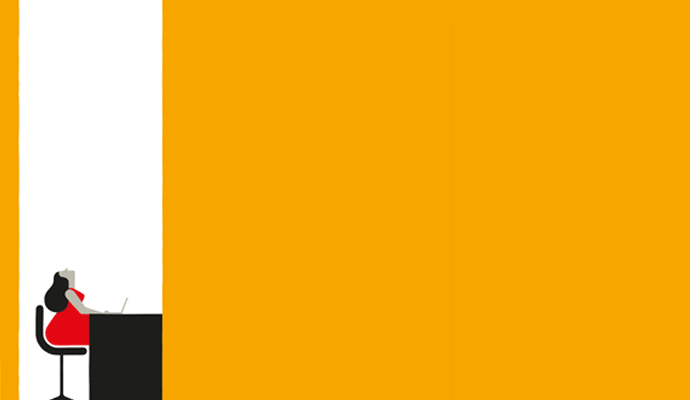Best Business Books: Beyond Business
The Well-Read Executive’s 12 Steps to Better Thinking
(originally published by Booz & Company)Some 20 years ago, the Department of Extra-Mural Studies of Cambridge University in England decided to investigate the possibility of offering a management course for senior executives during the summer vacation. Cambridge at the time had no business school within the university. The organizers asked me for a list of possible speakers and teachers, expecting, I imagine, a catalog of the currently fashionable globe-trotting gurus.
I suggested an alternative approach: The last things these already successful executives needed were yet more formulae for managing money and people. Rather, now that they were moving to the top of their organizations, they needed to focus on the trends and the domains outside their immediate world of business that could affect their company in the future. Executives needed to meet scientists, political theorists, cultural anthropologists, philosophers, creative thinkers, poets, and dramatists — people who could talk to them about emerging issues in their fields and expose them to different ways of thinking about the human experience. Cambridge, I pointed out, already had an abundance of teachers from a variety of disciplines. It needed no outside resources to offer the course I proposed.
Nonetheless, Cambridge rejected my suggestion and eventually created its own more conventional institute of management studies. Last year, however, the oil multinational BP, as part of its executive development program, arranged a seminar series at Cambridge for a select few future leaders that was much like the course I had envisioned.
Power, Responsibility, and Ethics
You do not, however, need to go to these lengths to meet such thinkers. You can read their books, even after they are long dead and gone! As an integral part of the yearlong Sloan course for executives I was responsible for starting at the London Business School, we structured an ongoing seminar based on books and readings on power, responsibility, and ethics. The perplexed executives were confronted on their first day in the classroom with two books: The Meaning of Company Accounts (1971), and Antigone, the Greek tragedy by Sophocles. Antigone, I pointed out to them, was faced with the choice of obeying the law passed by her uncle, the ruler of Thebes, or the religious laws of her gods. It was a choice between authority and conscience, and between two conflicting obligations, the kind of choice that confronts many executives at one time or another. Antigone went with her conscience and would pay for it with her life, but felt her choice was right. Should executives sacrifice career to family, or vice versa? Or is there a better path between two often conflicting duties?
Antigone, fascinating though it is, can be heavy going for those not accustomed to reading plays, particularly plays written in another age, language, and tradition. In looking for a selection of books to provide an alternative to the Cambridge experience, I avoided the temptation to recommend a list of Great Books, a mix of, for instance, Shakespeare, Plato, Aristotle, and Stephen Hawking. Some people may believe these books encompass much of what we need to think about in troubled times. I looked, instead, to books that could be comfortably read over a free weekend.
Likewise, the books I chose to discuss in this essay are accessible yet thought provoking, enjoyable yet challenging — books that have forced me, in my own life, to look again at some of my assumptions and stereotypes. In total, I propose a selection of 12 books, enough for a year, perhaps.
Periscopes into Other Worlds
To enlarge my horizons, I started, as I now always do, with novels. Great novels act as periscopes into other worlds. No one, for example, can understand Europe today without appreciating what two devastating wars in the last century did to the minds and attitudes of its peoples. Sebastian Faulks’s riveting love story Birdsong: A Novel of Love and War (1993), set amid the traumas of the first of those wars, makes the huge statistics come alive in all their horror. It makes one aware, too, of how easy it is for those at the top of things to reduce humanity to numbers, and so to ease their consciences. Wars, of course, are not the only occasion when it becomes uncomfortable to put names and faces to those “human resources.”
If you prefer biographies, try Nelson Mandela’s autobiography Long Walk to Freedom (1994). It is an eloquent and personal evocation of the long decades of apartheid in South Africa, essential for any visitor or businessperson to understand before going there. It is also, of course, an example of courage and endurance in pursuit of a dream, a story to humble all lesser mortals. It is also an example of how one deeply caring person can influence enough people to change an entire nation.
A biography of another sort, of a city, Antony Beevor’s wonderful Stalingrad: The Fateful Siege, 1942–1943 (1998) tells the story of that city’s fight for survival against the Nazi armies in the Second World War, of the staggering loss of life among the Russians, and of their amazing fortitude. It is an engrossing read, one that helps to explain why Russia, having lost 20 million people overall in that war, will never want another one and has always overspent its resources to arm itself, surely not for attack but for defense. The book also stands as a case study of a strategy gone awry. It went wrong on the German side because they forgot that wars, whether of nations or of organizations, are ultimately fought by humans rather than machines, and humans, uncared for, die or give up.
Science or Science Fiction
Science or science fiction can help executives gain entry to a world that might be, if we don’t shape it ourselves. Kurt Vonnegut, Jr.’s Player Piano (1952), published almost 50 years ago, is still a spine-chilling forecast of a world where top scientists and technocrats run society, while those with redundant or nonexistent skills are forced into the Reconstruction and Reclamation Corps. Underneath the surface, however, revolution seethes. Proclaimed an instant classic of satirical, prophetic science fiction when it first appeared, Player Piano still rings uncomfortably true today.
 Science has always been a missing part of my educational jigsaw puzzle. Luckily there are now some gifted writers, often journalists, who can help to fill that gap. The most fluent of them, perhaps, is Richard Dawkins. His book The Blind Watchmaker: Why the Evidence of Evolution Reveals a Universe without Design (1986) is a compelling description of a revolutionary theory. By the middle of it you begin to wonder why you bother getting up in the morning if everything is so preordered by our genetic inheritance. But Dawkins is at pains to emphasize that we are still masters of our actions, even if we are not masters of our inheritance. Knowing which is which becomes the real issue, and understanding of evolutionary theory is key.
Science has always been a missing part of my educational jigsaw puzzle. Luckily there are now some gifted writers, often journalists, who can help to fill that gap. The most fluent of them, perhaps, is Richard Dawkins. His book The Blind Watchmaker: Why the Evidence of Evolution Reveals a Universe without Design (1986) is a compelling description of a revolutionary theory. By the middle of it you begin to wonder why you bother getting up in the morning if everything is so preordered by our genetic inheritance. But Dawkins is at pains to emphasize that we are still masters of our actions, even if we are not masters of our inheritance. Knowing which is which becomes the real issue, and understanding of evolutionary theory is key.
Evolution is an old science, albeit still developing. Complexity theory, with its mix of physics, mathematics, economics, and, inevitably, computers, is a new and exciting area of science, and one that is increasingly relevant for people in business. I am hard put to understand complexity theory, but M. Mitchell Waldrop’s Complexity: The Emerging Science at the Edge of Order and Chaos (1992) does an excellent job of explaining it, largely via stories of the people from the Santa Fe Institute. By so doing he gives this science a human touch, and also shows how the intellectual ideas of a few individuals can change the world. Ideas, we need to remember, last longer and can be more powerful than any regime or organization.
The Political Philosophers
Back in the world of human interactions, of political and economic ideas and ideologies, we often need to jerk ourselves out of our familiar ruts in order to see the world as some others see it, or have seen it. It is eye-opening to read Karl Marx’s first attempt to describe the reasons for Communism in The Communist Manifesto (1848), written in collaboration with his businessman friend Friedrich Engels. This 38-page pamphlet glows with indignation and helps one to understand some of the passions that the socialist creed can unloose. It is arguably the most influential political call to arms ever written, and the world has been shaken repeatedly by those who sought to make its declamations a reality. Too many of Communism’s enemies never read it, so never understood it.
Alexis de Tocqueville’s Democracy in America (1835) is another book that is much quoted and seldom read, although it should be. Choose from its many provocative chapter headings, such as “What Causes Almost All Americans to Follow Industrial Callings” or “Peculiar Effects of the Law of Physical Gratifications in Democratic Times,” because this is too big a book, in every sense, to be read in a single weekend. Fluently and eloquently written by a young Frenchman, it is an insightful picture of America’s democratic strengths as opposed to what he saw as the corrupted regimes of Europe. There were flaws in America, too. The author worried that corruption in political circles meant that “the ablest men in the United States are rarely placed at the head of affairs,” and he worried about the growing numbers of the “rabble” in America’s cities. Much of what he saw back in 1835 still rings true today, but some of the strengths he celebrated, the social cohesion that bonded communities, may be eroding. The book is a reminder of all that America stood for and promised — and must not abandon.
Marx and de Tocqueville were writing 160 years ago. Naomi Klein, a young Canadian, is writing today. Her book No Logo: Taking Aim at the Brand Bullies (1999) could be called a business book were it not for the fact that she is delivering a blistering attack on global capitalism, its exploitative corporations, its all-enveloping brands, its cultivation of desire and envy, and its overtones of greed. Most businesspeople won’t want to read it, but they miss an important perspective by avoiding it. Apart from anything else, it is a riveting read, leading you around the world from vivid image via personal story to staggering statistics. Whether you agree with her or not, Klein is the voice of many of the people who protested in Seattle, Prague, and Nice. Anyone interested in the future of capitalism needs to listen to this articulate child of capitalism who has come to scorn the world she was born into.
If, however, you are looking for some solutions to the deeper problems of capitalism, particularly the endemic poverty of the developing world, you should turn to Hernando de Soto’s The Mystery of Capital: Why Capitalism Triumphs in the West and Fails Everywhere Else (2000). De Soto is a Peruvian economist who puzzled over the paradox that you have to be truly entrepreneurial to survive in the slums of Lima and other cities in the developing world — yet this entrepreneurial energy doesn’t flow into economic growth.
The explanation, he suggests, lies in the difficulty the poor have in turning their assets into usable capital because they often have no legal claim to their homes and shops. They have homes but no titles, businesses but no statutes of incorporation. They cannot borrow against assets that have no legal form. The advanced nations discovered in the Industrial Revolution how to leverage their property assets to create new capital, but it is one lesson that has, thus far, not reached people in poverty in the developing world. De Soto shows that in Egypt, for example, the unrecorded assets of the poor are worth 45 times as much as all the foreign investment ever sent to that country.
 Some traditional economists have criticized de Soto’s work, but he resonates with many others. Margaret Thatcher said that this book should be compulsory reading for all in charge of the wealth of nations. It is exciting because, unusually, it links analysis of a problem with obvious things that can be done. It might even happen that de Soto’s ideas could provide a benevolent alternative purpose for the profusion of lawyers in affluent nations. Executives of multinationals, too, might be encouraged to look afresh at the entrepreneurial energies that de Soto suggests lie hidden in the emerging markets of developing countries.
Some traditional economists have criticized de Soto’s work, but he resonates with many others. Margaret Thatcher said that this book should be compulsory reading for all in charge of the wealth of nations. It is exciting because, unusually, it links analysis of a problem with obvious things that can be done. It might even happen that de Soto’s ideas could provide a benevolent alternative purpose for the profusion of lawyers in affluent nations. Executives of multinationals, too, might be encouraged to look afresh at the entrepreneurial energies that de Soto suggests lie hidden in the emerging markets of developing countries.
Poetry and Drama
Capitalism and its future is serious stuff, but not necessarily the most important. For that I turn to poetry and drama. These both play on the perennial chords of our lives. They confront our human predicaments, our mixture of hope and despair; they offer us no solutions but give us images we can ponder late into the night, images that sink into our subconscious. Great poetry and great drama remain relevant across time. Keats and Yeats still tingle our senses; Shakespeare and Sophocles continue to be performed today.
We each have our favorites. My own chosen poet would be John Donne, the 16th-century poet priest who wrote some of the loveliest love poems ever. For a sampling of his work, try John Donne: A Selection of His Poetry (1950). I first fell in thrall to his language as a college lad, but, unlike most youthful infatuations, this one has lasted all my life. On change Donne writes:
To live in one land is captivity,
To run all countries, a wild roguery;
Waters stink soon, if in one place they bide,
And in the vast sea are more putrified:
But when they kiss one bank, and leaving this,
Never look back, but the next bank do kiss,
Then are they purest; Change is the nursery
Of music, joy, life and eternity.
I love his mix of the earthy and the spiritual, his struggle between his desires and his aspirations, his honesty with himself and the way he is always arguing and thinking aloud in his poems, even when he is distressed. Donne’s doubts and conflicts mirror mine, while his language turns them into music for a troubled heart. We all, I think, need comforters like these to turn to.
As for drama, I have been profoundly affected by Arthur Miller’s Death of a Salesman (1949). It is better to see this performed in the flesh than just to read it if the opportunity is there. Watching it, you are forced to realize that to make your life into a sort of lie is catastrophic, both for yourself and for those who love you, or once did. It is also a reminder of how heartless organizations can be, or sometimes have to be. It is the sort of play that leaves the audience so drained at the end that they almost forget to applaud. This is the gutsy reality of life, laid out before you, not entertainment as most people understand it, or escapism.
In a busy life it is easy to bury oneself in one’s work and ignore the wider world. At a peak moment of my professional career my wife commented that I had become the most boring man she knew. I realized then that I was in danger of focusing too narrowly on the immediate rather than the possibly more important. Preparing this essay has made me realize even more how much these particular books have shaped my own view of the world, enlarged my horizons, and, with luck, made me a less boring companion. ![]()
| Authors
Charles Handy, CandEHandy@aol.com, a renowned observer of business life, lives in London and is the author of many books and articles. His most recent book is The Elephant and the Flea: Reflections of a Reluctant Capitalist (Harvard Business School Press, 2002). Others include The Age of Paradox (Harvard Business School Press, 1994), The Age of Unreason (Harvard Business School Press, 1989), and The New Alchemists: How Visionary People Make Something out of Nothing (Trafalgar Square, 2001), with photography by his wife, Elizabeth Handy. |



